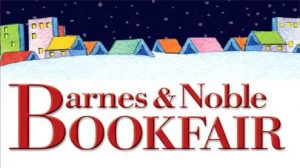Dec. 19- Native American “stay at school” field trip.
Dec. 20- Unit 5 Math Test
Dec. 21- Social Studies Unit 3 District Common Assessment
Dec. 21- Class celebration- 2:15. Please contact the room moms if you are interested in helping.
Dec. 22- PBiS December Reward
Dec. 22- Last day of school for 2017.

Remember that on any given day your fifth grader should be able to tell you what we did in school. The planner is a good reminder for them to help with this narrative. Sharing what they have learned each day is an excellent way to help students review.
The planner should be signed by a parent or guardian every day.
Homework might not always be a worksheet!!!!!
**Students should be working on multiplication facts every night.
**They should be working on Spelling City 10-15 minutes per night Monday – Thursday.
**Students should be reading 30 minutes each night. Their comprehension can be checked using the question sheet given to parents at conferences.
**Moby Max or Khan Academy- at least 20 minutes should be done each night.
**Students can use Ducksters or History.com to review social studies and/or science topics covered in class.
**Students will have assignments which need to be completed on Readworks.
**Content binders should come home every night so students can study and review that day’s lessons.
Math, social studies and science material in the binder should be studied each night to prepare for upcoming tests.
Math- Unit FiveTentative Test Date- Dec. 20
****Use everyday situations at home or while shopping to discuss fractions. Have your student help double or triple recipes to practice using fractions. Find ways to compare fractions and/or decimals and percents while shopping. Help your student see how important these math skills are to everyday life.
In Unit 5, students will spend time reviewing the meaning of fractions and converting them into decimals and percents. The objective is to concentrate on conversions among these notations, often emphasizing the fact that embedded in every fraction is a division problem. Fraction concepts explored are mixed numbers, comparing and ordering fractions, and finding equivalent fractions.

Social Studies-
***Unit Test Dec. 21!!!
We are continuing our study of Unit 3: Colonization and Settlement.
**In this unit students examine the causes and consequences of European settlement in North America during the seventeenth and early eighteenth centuries. Throughout the unit, students use primary and secondary sources to examine how Europeans adapted to life in North America. Students begin the unit by exploring the reasons for European colonization and identifying the push and pull factors that caused people to migrate to the New World. Students next examine a variety of early settlements such as Roanoke, New Amsterdam, Jamestown, and Plymouth. In doing so, students explore how the reasons for migration and the physical geography of the New World influenced patterns of early colonial settlements and their development. Students explore the three distinct colonial regions: New England, Middle, and Southern colonies. They investigate significant developments in each colonial region, focusing on political institutions and economic activities. For example, in studying the growth political institutions, students explore the Mayflower Compact, colonial representative assemblies, the establishment of town meetings, and growth of royal government. Emphasis is also placed on the economic development of each region, including the establishment of staple-crop agricultural economies in the south and the growth of manufacturing and small farms in New England. Students also consider how regional economic differences influenced the use of slave labor in different colonial regions. In exploring the relationships between the European settlers and American Indians, students compare how the British and French differed in their interactions with indigenous peoples. In considering the Dutch settlements in New Netherlands, Quaker settlement in Pennsylvania, and the subsequent English takeover of the Middle colonies, students analyze immigration patterns that led to ethnic diversity. Students also assess the role of religion when exploring each colonial region. Throughout the unit, students gather and evaluate evidence to answer the question: Why did different colonial regions develop in North America?
**This week we will work on revising slideshows with the topic of the early English settlements of Roanoke, Jamestown, and Plymouth.
***Material in the binder should be studied each night as we work through the unit!!

Writing– Students continue conferring with their teacher regarding adjustment of their goals and projects. Stamina and independence continue to be emphasized as students strengthen their literacy skills. Students will use the writing process to construct opinion pieces.
Reading-
*Fiction-We are beginning a genre study of graphic novels while we also continue to develop our Daily 5 routine.

*Non-fiction- We will begin working on the skill of identifying the central/main idea in a non-fiction piece.
Grammar – We will be doing a review of the different parts of speech.
Spelling – We will not have a list for 12/18 – 12/22. Please see Spelling City for the current spelling list and activities.









